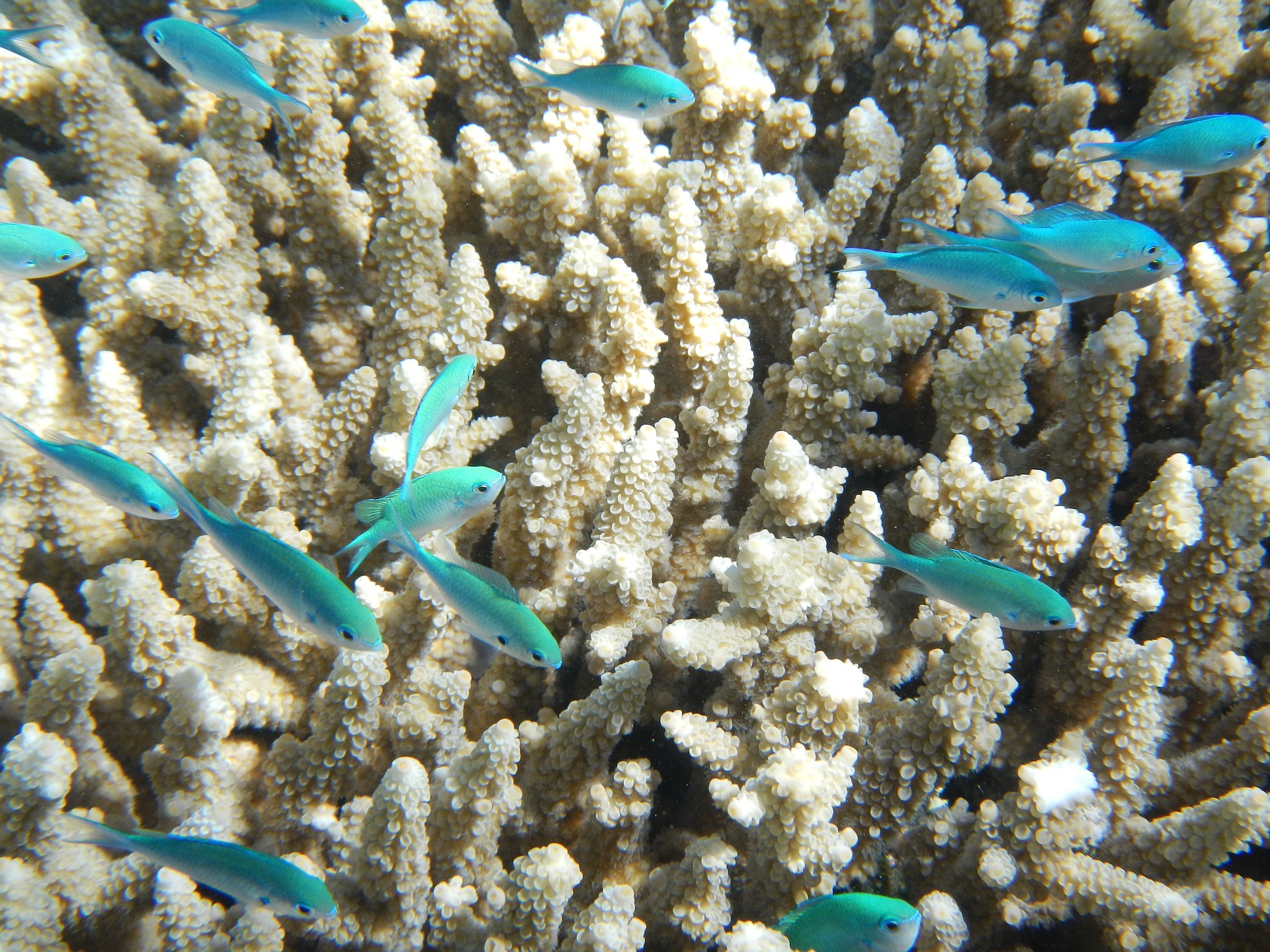News release
From:
Small, fast-growing reef fishes evolved in a warming ocean
James Cook University scientists have found coral reef fish developed faster growth rates in the warm oceans of the past, 50-60 million years ago. These small and fast-growing fishes epitomise the productive coral reefs of today.
JCU’s Postdoctoral researcher Dr. Alexandre Siqueira co-led a study with PhD candidate Helen Yan that looked at the evolution of growth rates across coral reef fishes.
Going back millions of years, they found that these reef-associated fishes tended to grow faster and to smaller sizes over evolutionary time.
“These abilities first evolved roughly 50 to 60 million years ago, which coincided with a time when the global temperatures on Earth were drastically warmer. These geologically high temperatures seem to have really pushed the boundaries of the smallest fishes on reefs towards a live-fast, die-young lifestyle, with some of the fastest growth rates in the entire animal kingdom,” said the authors.
“For example, the pygmy goby has the shortest lifespan of any vertebrate in the world: it grows to its full adult size in just over one month and lives for less than eight weeks,” said co-author Professor David Bellwood. These fast-growing fishes are extremely abundant on coral reefs, contributing to the high productivity of these systems.
The authors said that this modern dynamic lifestyle arose before the reefs we know today.
“Corals, that only started forming reefs at a later stage, likely provided the necessary cover for many small-bodied, fast-growing fishes.
“So, the geologically warm temperatures appear to have led to the evolution of faster growth rates, while the subsequent rise of reefs allowed the retention of these faster lifestyles.”
These remarkable findings also raise concerns over current rates of warming from human-induced climate change.
“Our study suggests that warmer waters might lead to smaller, faster-growing fishes. This means that current warming global temperatures may directly impact fish life strategies,” said the authors.



 Australia; QLD
Australia; QLD



